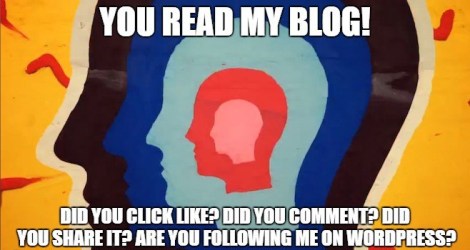Have you ever wondered how more manageable your bipolar could’ve been? Imagine that you knew a little more about bipolar, like you do about HIV or Cancer as a matter of fact.
While at school, the closest that I ever got to knowing what bipolar is, was from a section out of the curriculum dedicated to depression, from an overambitious guidance teacher. My second encounter with bipolar was from the tv show, Shameless, which simply romanticized the disorder that is bipolar (and not HIV or Cancer). Bipolar may not be under the same bright lights of the latter, as we attach too much importance to them for considerable reasons; however, it’s a disorder that’s blanketed not just by the individual but by the stigma that society attaches to it.
Let’s stretch the timeline a bit here (and keep the stigmas for another post. Wink!). According to healthline.com, bipolar has its roots in 1st century ancient Greece. Over the years the study of bipolar and understanding of it would have its generation gap narrowed to that of past centuries, clearly drawing a fine line to that of Aristotle’s lust for inspiration from pensive sadness and people receiving proper treatment. Bipolar is not circumscribed to a specific age group, although we’re led to believe that it has a tendency to sprout in the 20s. It could be around for as long as you have known it.
It is important to understand bipolar, in its fullest – the two poles of mania and depression. These two poles co-occur and interchanges at the flip of a coin. At one stage you might be riveting in the feeling of mania and then it slowly weans its way to a state of depression. Healthline.com outlines the 7 varying signs of the two poles – mania and depression. (Please note: it’s important that you consult a psychiatrist to confirm your self-diagnoses and seek the necessary steps to effectively treat it).
7 signs of mania
- feeling overly happy, “high,” or elated for long stretches of time
- feeling easily agitated, which some describe as feeling jumpy or twitchy
- talking very fast, often accompanied by racing thoughts
- extreme restlessness or impulsivity
- impaired judgment
- unrealistic overconfidence in your abilities or powers
- engaging in risky behavior, such as having impulsive sex, gambling with life savings, or going on big spending sprees
7 signs of depression
- feeling sad or hopeless for long periods of time
- withdrawal from friends and family, and/or a loss of interest in activities that were once enjoyed
- significant loss or increase in appetite
- severe fatigue or lack of energy
- slow speech
- problems with memory, concentration, and decision-making
- thoughts or attempts of suicide, or a preoccupation with death
The benefits of being diagnosed are plentiful. There are many ways in which you can do this. For one, a self-diagnoses could work or even outlining the differing symptoms you identify with. But ultimately, you have to consult a psychiatrist. Getting the right medication/treatment is one of it. But the treatment of it through medication cannot exist without therapy. The two coincide with getting proper treatment and ensuring that you find a manageable way to take charge of your life, and especially that of your bipolar.

That’s my mind mischief. A blog.
You can read up on more mind mischief @mymindmischiefblog.wordpress.com
Frank Moody

The problem with mania is that it can be very difficult, if not impossible, to measure from the inside. Your insight is impaired. After almost a decade and a half of stability and working in mental health and related fields, I cut back my meds (with doctor’s support). When workplace stress started to build under extreme conditions, I went off the rails. Cost my career. The sad part is that I was always open about being bipolar but no one around me knew what to watch for. A comment about how fast I was talking finally clued me in and I removed myself from the office. By then I was a mess and the damage was done. You need someone you trust to sound the alarm early.
Just saying.
LikeLike
I fully understand what you’re saying. I have written a post on my personal blog, which outlines the importance that one’s spouse plays in providing support and also sounding the alarm for a looming manic episode: https://mymindmischiefblog.wordpress.com/2016/07/05/what-would-most-men-with-bipolar-be-like-without-their-spouses/ .
LikeLike
I was married with young children a the time of my first very serious mania (and diagnosis). I have been divorced many years, a single parent, and work was my world. One of my children (they are both grown) has a disorder on the bipolar spectrum and I have no serious expectation of having a serious relationship in the future (I am a middle-aged gay man). I have friends and acquaintances of course, but none who are close enough – in real life. This sort of isolation is not unique, mental health issues or not. Be thankful you have your wife.
LikeLike
Reblogged this on My Mind Mischief and commented:
A post from earlier this week! Feel free to share your thoughts.
LikeLike